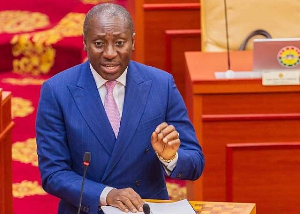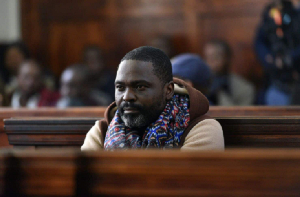Tamale, Sept 12, GNA- Chiefs in Northern Ghana have called on the government to mandate the Ghana Education Service (GES) to involve them in the planning of educational programmes at the lower levels. The chiefs have pledged to lead the process of mobilizing resources towards education, including the establishment of education endowment funds.
The call was contained in a resolution by the chiefs at the end of a two-day conference of traditional rulers on education in Tamale. The Northern Region House of Chiefs in collaboration with the Northern Network for Education Development (NNED), an NGO, organised the conference, which had the theme: "Education for all campaign, the role of the chiefs in achieving its set objectives by 2015."
The Commonwealth Education Fund sponsored the forum.
The resolution, passed in Tamale on Friday, was signed by the Kpembe-Wura, Alhaji Harruna Ibrahim, Paramount Chief of Kpembe Traditional Area, representing the Northern Region House of Chiefs; Kayoro-Pio, Pe Oscar B. Tiyiamu II, Vice-President of the Upper East Region House of Chiefs, and Naa Banaamwini Sandu II, Vice-President of the National House of Chiefs, who represented the Upper West Region. The chiefs urged the government to establish more training colleges in northern Ghana to train teachers for the rural basic schools in the area that are poorly staffed.
The government should also ensure that the University for Development Studies (UDS), the only university in Northern Ghana, is well funded and sustained, especially its medical school.
The resolution said in matters of resource allocation to all sectors of the economy including education, the government should be guided by the need to bridge the gap between northern Ghana and the southern sector.
The district assemblies should make education a top priority in all their plans and support brilliant but needy students, especially, girls. The chiefs urged NGOs operating in their traditional areas to recognize the role of chiefs and involve them in all government programmes.
They pledged to lobby, attract, retain and work in concert with development partners, particularly NGOs, in the communities. The resolution said: "We as chiefs recognize the numerous cultural and customary practices militating against quality education, especially for the girl-child since we are the custodians of tradition and culture and well aware of these practices".
"We, therefore, pledge to reduce the incidence of betrothal, exchange and withdrawal for marriage and elopement of our daughters within the short-term and to eliminate these practices as a long-term objective.
"We will do all in our power to modernize child fostering in our communities, insisting that these fostered children are sent to school by the foster parents", the resolution said. The chiefs pledged to enact byelaws, in consultation with the district assemblies, on compulsory enrolment of children of school-going age and elopement.
The resolution commended the government for making education community-based, thus ensuring the involvement of chiefs. 12 Sept. 03
Regional News of Friday, 12 September 2003
Source: GNA
Chiefs call for their involvement in education planning
Entertainment











